Written by Guest Blogger: Michelle Bahadur
Sleep Syncing for Wellness
2023 seems to be the year that everyone has decided to fix their sleep, and why not? We are all becoming aware of how important sleep is for our overall health and well-being. So, I wanted to share my sleep secrets in case sleep syncing is something new to you. But first, what is sleep syncing?
What is Sleep Syncing?
Sleep syncing is when you program your body to align with your circadian rhythm, which is the body’s natural sleep/wake cycle. Before alarm clocks were a thing, we woke up with the sun and went to bed when the moon came out. Sleep syncing is trying to stick to the same sleep/wake times each day, including the weekends. This cycle helps you fall asleep faster and sleep deeper, resulting in less stress, more energy, and a clearer mind.
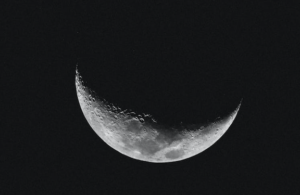
Melatonin Circadian Rhythms and Sleep
I am sure you have heard that disengaging from electronics is the key to catching the fast train to dreamland. But what is the science behind it? Simply put, the blue light emitted from electronics suppresses melatonin production. This can cause problems with your slumber because melatonin is one of the key hormones that controls your sleep schedule (aka your circadian rhythm).
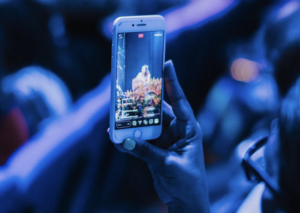
How Does Blue Light Affect Sleep?
In this article, I will focus on what made a difference for me personally and how I took my sleep from ok to optimal with just a few minor adjustments. Everyone knows what a difference a comfortable mattress and pillow can make on their sleep, but how can we go above and beyond to ensure we have the best sleep ever?
For one thing, I can’t stress how important it is to put electronics away at least 30 minutes before it’s time to sleep. This truly makes the BIGGEST difference! Laptops, computer monitors, smartphones, tablets, TVs, and fluorescent lights all give off high energy blue light, which makes it harder to fall asleep. Also, I feel like we have all become so attached to our phones and TVs that we have forgotten the art of sitting still and letting our minds wander.
8 Sleep Syncing Secrets for a Healthy Circadian Rythm
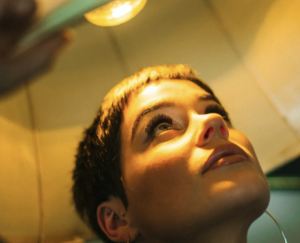
#1 SAD (Season Affective Disorder) Lamp
People who live in places that are dark and gloomy should invest in a SAD lamp. I first got an inexpensive one from Amazon in 2016, but I soon realized how much it changed my life, so I upgraded to a better one. I don’t use it much in the summer as my circadian rhythm is in sync with the sun. But sometimes, my sleep can get out of whack when those birds decide to chirp at 4 am. The SAD lamp comes into use in winter when the sun disappears for days, and I can barely catch any daylight because I am stuck in the office all day. These lamps can be a life saver and make getting out of bed a little less of a struggle. They work by mimicking sunlight, providing the warm glow of the sun that helps me wake from my slumber.

#2 Supplements
I have tried many different supplements that claim to help you sleep better, so I feel pretty confident pointing out the three main ones that have worked for me.
Magnesium – I read ‘The Magnesium Miracle’ by Dr. Carolyn Dean back in 2013. She emphasized the importance of magnesium in every part of the body. Not only is magnesium a muscle relaxer that can help you sleep better, but it can also benefit your heart, mood, and energy levels. I have experimented with different types of magnesium but found a highly absorbable version to be the most effective. Some can be a bit harsher on the stomach to digest. While I do not take magnesium as religiously as I would like to, I find a noticeable difference in my sleep when I do take it. I also find that applying a magnesium spray or gel is very effective, especially for achy muscles.
Sleep Drinks – Without mentioning any brands, I will say sleep drinks with mushrooms seem to pack quite a punch. Ancient Ayurvedic drinks like ‘Golden Milk’ that contain herbs and spices like turmeric, cinnamon, and saffron also work like a charm, although they may not be as potent as mushroom-powered drinks.
CBD – I find CBD to be the least effective in terms of “supplements” but helpful nonetheless as I notice that I sleep deeper on the days I squirt a bit of CBD under my tongue.
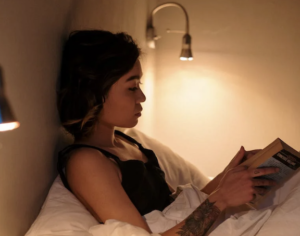
#3 Reading or Listening to Classical Music
If you find your mind wondering too much before bed, try to find a book to read. I read by the light of my SAD lamp, so it is not too bright. I also have a reading light that offers a warmer hue, rather than a typical blue light. You can also try listening to classical music in a warm bath or working on a puzzle before bed. The main point is to allow yourself to wind down by staying away from the blue lights that electronics emit.

#4 Writing or Journaling
If reading does not work for you, try writing. Journaling before bed is an effective way to purge any excess chatter out of your brain. Think of this like a “brain dump” where you clear all the thoughts out of your mind. It can also help you reflect on your day. Maybe when you read through your journals in the future, you will find them helpful in pointing out thought patterns or habits that stop you from living your best life.
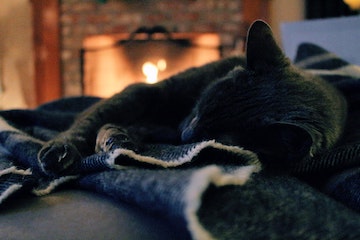
#5 Temperature
I cannot sleep when it is too cold. But I sometimes wake up in the middle of the night if it is too hot. Then I find myself struggling to fall back asleep. Working out the ideal temperature is a “sleep hack” that will make a difference in the quality of your sleep. Consider investing in a heat blanket, a cooling blanket, or crack the window a little to let cool air.
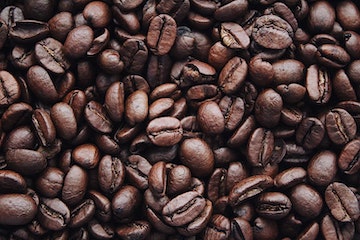
#6 Caffeine
This one is pretty obvious and goes without saying that the more coffee you drink, the more difficult it will be to sleep well. It can take up to 10 hours for caffeine to leave your system, so keep in mind that that last cup can really make a difference in your sleep quality.
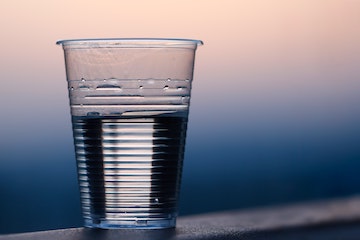
#7 Liquids Before Bed
Try to avoid drinking liquids after 7 pm so that you do not find yourself running to the bathroom in the middle of the night. I lighten up on my water intake after 5 pm and then save some room for one of my sleep drinks.

#8 Dinner Time
This is a concept I struggle with because its recommended to eat at least 3 hours before bed, but sometimes I find that I have the best sleep on a full stomach. To “each their own” on this one as I know everyone is different, and some people enjoy sleeping on an empty stomach, while others do not. But for me, dinner time does not make much of a difference, although most days I tend to eat dinner 3 hours before bed.
I hope you found this sleep syncing article helpful, and I wish you all a nice slumber!
Happy sleeping, friends!
Writer Bio


